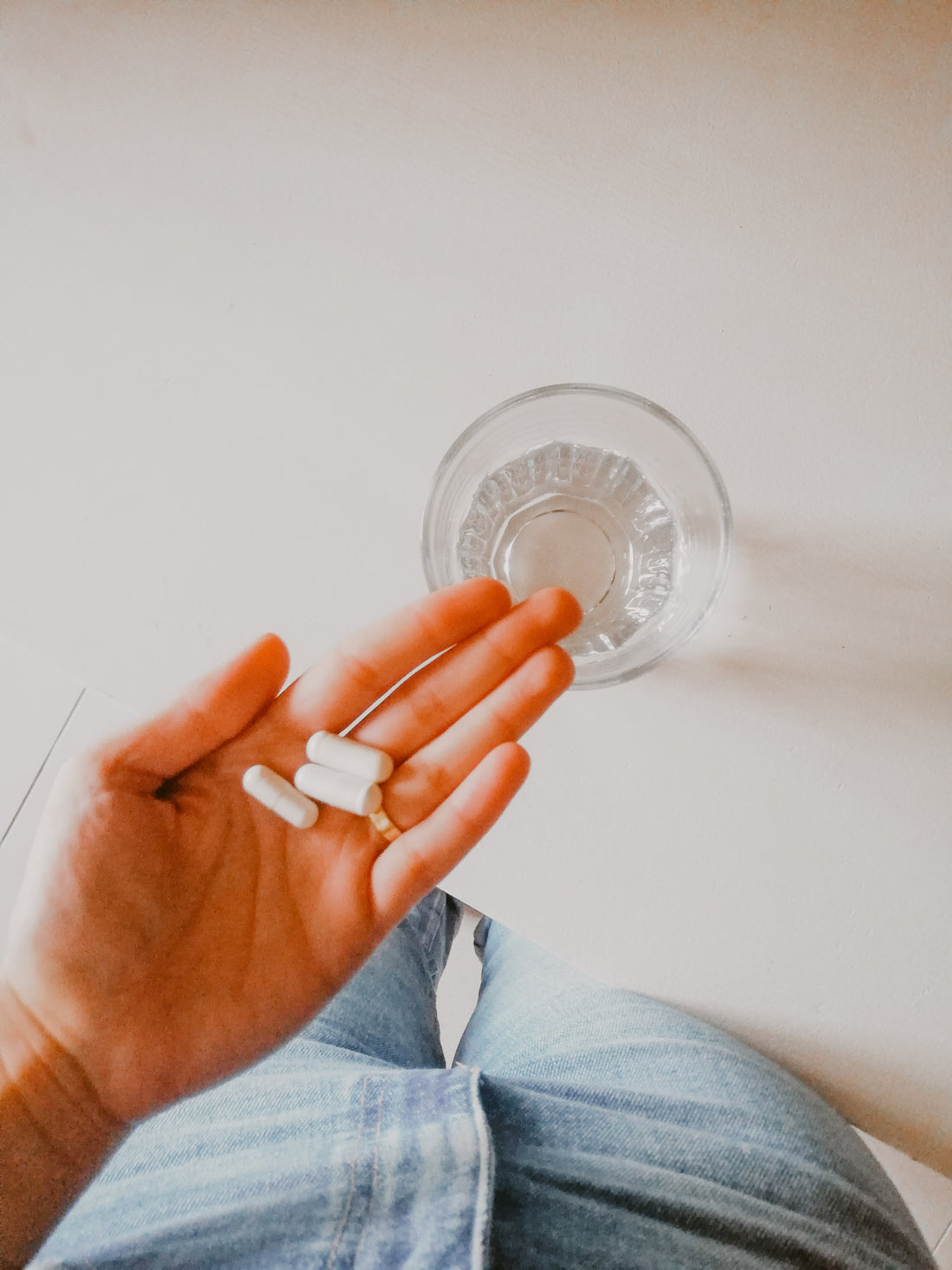A new year, a new you, right?
Sometimes it isn't that simple! And most times, it can be linked to our inability to focus and improve our mental clarity.
"Brain fog" is a sign that your brain is undergoing degeneration, but brain fog and degeneration can be reversed!
Brain fog is described as:
- Inability to focus
- Forgetfulness, poor recall, or memory blocks
- Mental fatigue
- Low physical energy
- Irritability
- Low motivation, feeling hopeless or mildly depressed
- Anxiety
- Confusion
These signs and symptoms raise concern for many women, specifically over the age of 50, especially if they’ve seen any cognitive decline in a close relative.
If you have inherited genes that predispose you to develop certain diseases, research has now established that the expression of those genes are directly influenced by the environment they are exposed to. The sciences of epigenetics and nutrigenomics are growing rapidly, and offer us many strategies that put the rate at which we age right into our own hands.
No matter what genes you inherit from your parents, how you treat your genes and the environment you place them in will “turn them on,” or in the instance of the bad genes, “turn them off.”
Here’s some examples of what you can do to improve brain function and reverse brain fog, including some of my top recommendations for daily supplements that have been clinically studied and shown to improve mental clarity. You'll also be preventing brain degeneration and cognitive decline as a bonus!
1. Managing stress and getting adequate sleep.
Listen friends, I am the FIRST person in the "guilty line" when it comes to (not) adequately managing my stress and getting enough sleep, but I have also felt the mental effects of neglecting these areas in my life. This is why I know these are truly important.
Managing stress, exercising, a healthy diet and getting good, quality sleep… always begin your health journey with these. They’re free and simple to do, but not always EASY.
Stress is what most people consider to be number one cause of mental fog. When we are stressed it releases cortisol into our bloodstream, which causes us to feel unable to focus and overall exhausted.
This effect becomes even worse when stress continues over a long period. Chronic stress is a killer for productivity and your concentration. It is important to work on reducing your stress as it is correlated to various health issues. Meditation or any form of physical activity is known to reduce chronic stress.
2. Meditation for your mental health.
Meditation has been around for thousands of years. If you’ve never tried it before, now is the time! Meditation can help you focus on what you want to achieve in the present moment. It can also guide you to let go of the past and the future (and the included stress). Meditation apps I personally love include: Calm,Calm, Headspace, and Insight Timer.
Similarly, when we don't get enough sleep, our attention and concentration abilities decline, and our reaction time lengthens. We become inattentive, and unable to respond as well to environmental signals. Additionally, lack of sleep can also contribute to a long list of health problems such as heart disease, high blood pressure, diabetes, obesity, and even early death.
3. Diet and additional supplementation.
Many of the nutrients that support your brain and improve cognitive function can be found in certain foods, but to reap the greatest benefit, you’ll need to add supplementation. Even if you’re eating a healthy diet, you just can’t obtain a high enough dose of these goodies from food alone. So, what are the nutrients considered to be such good food for your brain?
There are several supplements that have been well-studied and proven effective for improving cognition. Each of these have the benefits of improving executive function, memory, motivation, creativity, and the ability to focus. Each also provides additional benefits to the other cells and organs in the body.
- Omega-3 fatty Acid
- B Complex, specifically B12 and Folate
- Phosphatidyl Serine
- N-Acetyl Cysteine
- Acetyl L-Carnitine (ALCAR)
- Pre- and ProBiotics
- Vitamin D with K2
- Curcumin
- Alpha-GPC
- Alpha-Lipoic Acid
I want to focus on three of these supplements, specifically, because they have also been proven to positively affect other physiologic functions that can diminish with age. In addition to being cognitive enhancers, they also help your own insulin work better, improve your body’s fat burning ability, increase energy, support cardiovascular function, and help you sleep better.
1. Acetyl L-Carnitine (ALCAR)
This powerhouse of an amino acid is concentrated in the body’s most metabolically active organs: the brain, heart, and muscles. Amino acids are the building blocks of protein. ALCAR transports fatty acids into the mitochondria where they’re burned for energy, as it also helps in the production of acetylcholine. Acetylcholine is the neurotransmitter most associated with the cognitive function of memory. Studies have shown that acetyl l-carnitine is helpful in slowing brain related aging and decline.
There are several dietary sources of ALCAR, primarily red meat… hence the name CARNitine. However, since it’s impossible to get a therapeutic dose of this amino acid from food, you will need to supplement to reap the full cognitive benefits.
A brand I personally take is Life Extension ALCAR. Typical daily dosage is 300mg-1500mg.
NOTE: L-carnitine is less expensive. I use this form for increasing energy, and I have a great fat-burning tea recipe with powdered L-carnitine as well. But for the cognitive benefits (especially memory), you need to make sure you spend the extra money and take acetyl l-carnitine.
2. Alpha Lipoic Acid
You may have heard me speak on the benefits of alpha lipoic acid (ALA) over the past year for its potent antioxidant benefits (as well as the fact my pharmacist career experience is primarily in Neurology so I'm a BIG fan of ALA), but it is also proven to display memory-ameliorating properties in neurodegenerative diseases, as well as in memory decline. Studies aiming to assess the neuro-protective effects of ALA on behavioral outcomes showed that ALA can reduce memory deficits in Alzheimer's Disease. Also, ALA has shown anti-inflammatory properties, ability to improve mitochondrial dysfunctions at a cellular level and, overall, decreasing the neuronal cell death pathway.
The brand I currently take is Source Naturals Alpha Lipoic Acid. Typical daily dosage is 300mg- 600mg.
3. Dimethylaminoethanol (DMAE)
Omega-3 fatty acids found in fish oil are known for their vital health benefits, but another molecule found in fish, dimethylaminoethanol (DMAE), is increasingly favored by medical practitioners for its role in boosting brain power. DMAE has shown positive results in the treatment of a variety of cognitive and disruptive disorders, including attention-deficit hyperactivity disorder (ADHD) and memory lapses.
DMAE is believed to work primarily by speeding the production of acetylcholine, a crucial neurotransmitter responsible for carrying messages between brain cells and from the brain to the muscles that control body movements.
Acetylcholine, a synthesized product of choline, is also involved in higher brain functions such as learning, recall, and memory. Animal studies show that taking DMAE can boost levels of choline in the brain, which in turn increases the body’s ability to produce acetylcholine, resulting in a corresponding increase in memory ability and potency. Evidence suggests that DMAE crosses the blood-brain barrier more effectively than choline itself, enabling it to reach the brain and increase the brain’s choline levels more efficiently.
I am currently taking DMAE Life Extension. Typical daily dosage is 150mg- 1500mg. You want to start low and increase slowly when initiating DMAE.
Cheers to mental clarity and improved sleep in 2023!





2 comments
Emily, yes!
Do you suggest taking all three for helping with memory?